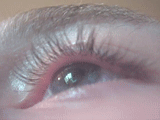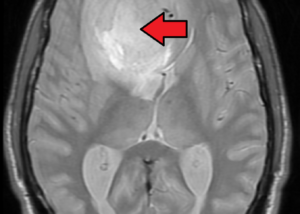
If you were to ask a room with 100 people this question, “Does anyone here ever get a twitching eyelid?” how many hands do you think would go up?
I am guessing that 97 hands would instantly fly up.
If you are reading this content, you’re probably an eyelid twitcher.
Because unless a person gets twitchy eyelids, it’s doubtful that they would be interested in clicking on this article.
Googling “twitching eyelids” can bring up some very interesting search results, especially when other keywords are added to this search term.
In fact, you may get links to sites that mention that twitching muscles are a symptom of a serious, fatal neurological disease.
And if you are vulnerable, prone to hypochondria, under a lot of stress or suffer from general anxiety, or if you are just for some mysterious reason in a highly suggestible mental state, you will allow your imagination to run amok.
And you will then begin fearing that your twitching eyelids are a sign of a terrible neurological malady.
There is no neurological malady of which twitching eyelids are a hallmark symptom.

A twitching eyelid in action. Leitz31337 at English Wikipedia/CC BY-SA
In fact, twitchy eyelids are so common in the general population, that it would be difficult to pinpoint them as an actual symptom of a disease, if the twitcher has a disease. The twitching would be coincidental.
For example, take Parkinson’s disease. Certainly, many people with PD have twitching eyelids.
But so do many people with diabetes, heart disease, lupus, arthritic knees and Crohn’s disease.
Whether you’re healthy or not, twitching eyelids are just a fact of life.
“Eyelid twitching can be caused by many things that can be equated with magnesium deficiency such as stress, alcohol intake, fatigue, insomnia or too much coffee,” says Carolyn Dean, MD, ND, medical advisory board member of the Nutritional Magnesium Association at nutritionalmagnesium.org.
“The best way to find out is to take some magnesium and see if the twitching goes away.”
Besides, if this was a sign of a serious nerve disorder, there would be other symptoms along with the jumpy eyelids.
And these other symptoms would rank much higher on the list of bodily problems (i.e., difficulty swallowing food; difficulty walking up and down stairs; difficulty picking up eating utensils).
Eyelid twitching in isolation is not indicative of disease.
Causes of Eyelid Twitching
- General eye strain (too much computer time or too much reading)
- Fatigue
- And topping the list is stress and anxiety! And if you stress out over the twitching, you’ll probably twitch even more!
Here are THREE more causes: contact lenses, strenuous heavy weightlifting and rubbing or scratching the lid.

Shutterstock/fizkes
Chronic wearing of contact lenses can really irritate the eyelid muscles, making them twitch and jump.
Heavy weightlifting may cause the eyelid muscles to tense up. The tensing then causes twitching.
Irritants from cosmetics may also cause twitching.
Aggressive rubbing or scratching the eyelids can cause them to twitch.
Many eyelid twitchers report that twitching bouts can linger for weeks on end, then suddenly disappear, then suddenly reappear months later.
More causes of eyelid twitching — Dr. Dean gives these additional causes: alcohol, nutritional deficiencies, dry eyes and allergies.
Solutions
Drink plenty of water.

Freepik.com
Get adequate calcium and mineral intake (including magnesium citrate).
Gently rub the eyelid with a fingertip — and gently; aggressive rubbing can trigger twitching.
Don’t fret about your twitching eyelids — after all, they take a beating daily, blinking hundreds of times a day to protect your eyes from pollutants, dust, allergens, microscopic spores, sunlight and wind.














